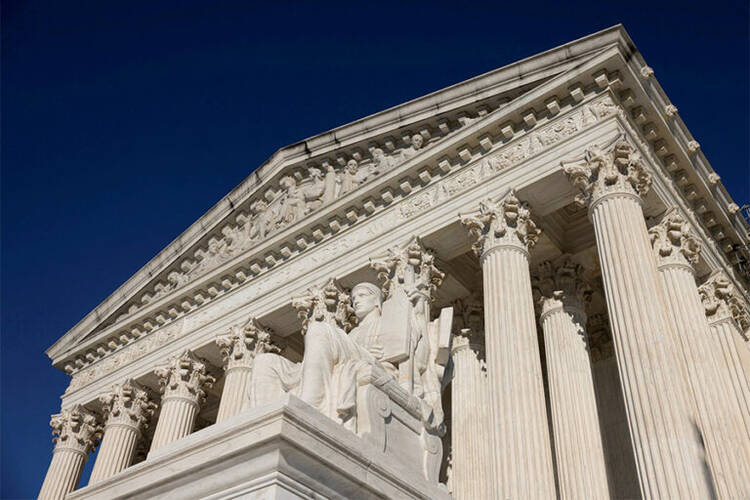WASHINGTON (OSV News) — The U.S. Supreme Court on Dec. 13 agreed to hear a case from the Catholic Charities Bureau of the Diocese of Superior, Wisconsin, in which the agency argued a decision by the Wisconsin Supreme Court discounted its religious identity.
The group filed an appeal in August to the high court challenging a March 14 ruling by the Wisconsin court that Catholic Charities is not exempt from paying into the state’s unemployment insurance system because its operations aren’t primarily religious under the statute.
“Wisconsin is trying to make sure no good deed goes unpunished,” Eric Rassbach, vice president and senior counsel at Becket, said in a Dec. 13 statement. “Penalizing Catholic Charities for serving Catholics and non-Catholics alike is ridiculous and wrong. We are confident the Supreme Court will reject the Wisconsin Supreme Court’s absurd ruling.”
Wisconsin law states religious employers in the Badger State are eligible for an exemption from its unemployment benefit program, if they operate primarily for religious purposes. The state argued, however, that the Catholic Charities Bureau does not meet that standard.
In court documents, Wisconsin Attorney General Joshua Kaul argued the group is a recipient of state funding and its employees and those it serves do not need to be Catholic. He also noted to the high court that “Catholic Charities has participated in Wisconsin’s unemployment insurance program since 1972, when it submitted a form describing the nature of its operations as ‘charitable,’ ‘educational,’ and ‘rehabilitative,’ not ‘religious.’”
Kaul’s office did not immediately respond to OSV News’ request for comment.
The Catholic Charities Bureau is seeking an exemption so that it can participate in an alternate program, the Church Unemployment Pay Program, established by the Wisconsin bishops in 1986, according to its court filings. In court documents, they argued the church’s program provides the same level of benefits to unemployed individuals as the state’s system but called their program “more efficient.”
“Catholic Charities Bureau is on the front lines bringing love, healing, and hope to the most vulnerable members of our community,” Bishop James P. Powers of the Diocese of Superior said in a Dec. 13 statement. “We pray the Court recognizes that this work of improving the human condition is our answer to Christ’s call to serve those in need.”
The 4-3 decision by the Wisconsin Supreme Court in March raised the threshold for religious groups to prove their charitable organizations qualify for such an exemption under state law. The court’s ruling, along its ideological lines, found that while the mission of the Catholic Charities Bureau and its subsidiaries are inspired by Catholic teachings, its actual work is “primarily charitable and secular” under state statute.
“In other words, they offer services that would be the same regardless of the motivation of the provider, a strong indication that the sub-entities do not ‘operate primarily for religious purposes,’” Justice Ann Walsh Bradley wrote in the majority opinion.
The high court will likely hear the case in the spring.








